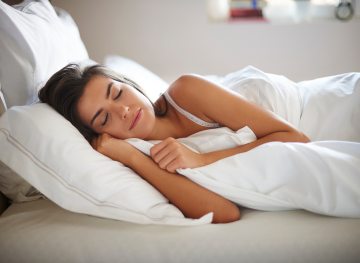

Free Delivery | Same day delivery in select cities
Have you been sleeping okay? Do you have a very irrational sleep pattern? Do you have problems sleeping at night because of various reasons? Have you been facing any of these issues? Then you need to read ahead.
The truth is sleep is one of the essentials to overall well-being. The quality of your sleep leads to better physical, emotional, mental, and spiritual health (funny how these are responsible for how well you sleep). To understand the importance of sleep, you need to understand how and why you sleep.
Is there a “science” behind why we sleep?
Your body has an internal clock that operates on a 24-hour cycle called the circadian rhythm. It is a cyclic process that runs in your body in the background to carry out essential functions of your body. One of the most important circadian rhythms is the sleep-wake cycle.
Your sleep-wake cycle determines when your body will release hormones and chemical compounds that either keep you alert and awake or make you tired and sleepy. This cycle is linked to an organic compound called adenosine, which is released in your body in increasing proportions throughout the day. This is responsible for making you tired towards the evening. Adenosine breaks down when you sleep at night, and the reason you wake up feeling fresh and lively.
Not getting too deep into the science behind sleep, let’s just say that some factors influence your circadian rhythm including light (yep, that is exactly why “blue light” is bad for you at night), your eating habits, lifestyle, and sleeping environment. As natural or artificial light disappears towards the evening your brain produces melatonin, a hormone that induces drowsiness.
Now that you know why you feel tired and sleepy, let’s talk about the different stages of sleep. Yep, that’s right, you sleep in stages. There are four stages, the first three are non-rapid eye movement (NREM) sleep, and the last stage is called rapid eye movement (REM) sleep.
These stages repeatedly occur throughout the night. Your sleep constitutes 75% to 80 % of NREM sleep. The older you get, the lesser your REM stages are (which is the essential part of deep sleep).
Okay, so why do you have to learn all of this? This is to understand how and why you sleep. Understanding this makes it simpler to explain how you can sleep better.
How can you sleep better?
Here are some proven tips you can follow which might help you sleep better:
How much sleep do you really need?
The amount of sleep you need depends on your lifestyle, your age, and your level of physical and mental activity, so you need to do what works best for you, and lets you function in the most efficient manner. The standard recommendation that is based on your age:
|
AGE GROUP |
RECOMMENDED SLEEP |
|
0-3 months |
14-17 hours |
|
4-11 months |
12-15 hours |
|
1-2 years |
11-14 hours |
|
3-5 years |
10-13 hours |
|
6-13 years |
9-11 hours |
|
14-17 years |
8-10 hours |
|
18-25 years |
7-9 hours |
|
26-64 years |
7-9 hours |
|
65 and over |
7-8 hours |
Closing thoughts
Sleep is responsible for powering up your mind, healing and recovering your body, and making you feel emotionally stable. You need to make sure you are well rested to function at your best (just don’t try sleeping your problems away). You can follow this article to educate yourself, but it is always better to consult a specialist in case you have been facing chronic problems.
References:
https://www.cdc.gov/sleep/about_sleep/sleep_hygiene.
htmlhttps://www.medicalnewstoday.com/articles/322994#stress-and-sleep
https://www.sleepfoundation.org/how-sleep-works/how-much-sleep-do-we-really-need
https://pubmed.ncbi.nlm.nih.gov/22652369/
https://pubmed.ncbi.nlm.nih.gov/23339991
https://examine.com/members/deep-dives/article/can-supplemental-vitamin-d-improve-sleep/